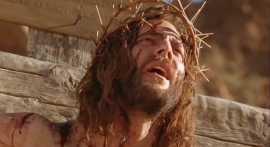
As the United States Supreme Court scheduled review of Dobbs V. Jackson Women's Health Organization draws near, a report highlights how the case pushes the United States to face the facts on abortion.
The National Review, through its editor-at-large Kathryn Jean Lopez, raised that the controversial Dobbs v. Jackson Women's Health Organization case can help Americans "see the cruelty that is abortion."
"A Supreme Court case can change our country in the best of ways. We need to start before the oral argument," Lopez declared.
Lopez recalled the time Mississippi Attorney State General Lynn Finch filed a 49-paged brief with the United States Supreme Court in July, during which she saw two women on a street who had an abortion and pointed how the procedure has affected the country negatively. Lopez then cited Fitch's particular statement in the brief that she agrees with, pointing out the truth it contains.
"As the brief was being filed, I saw a young woman crying on a street corner after an abortion. Abortion hurts women and kills children. Shortly thereafter, another young woman walked out with a friend, who asked her if she was okay. 'Am I okay? Are you really asking, Am I okay?' She was not okay. And we're not okay with nearly a half-century of legal abortion in the United States. Dobbs is an opportunity for us to reflect on what we're doing with legal abortion in America," Lopez stressed.
"Fitch writes something that should be quite self-evident from looking around the Internet and the streets I frequent, where prayer regularly gets hissed at. 'Far from bringing peace to the controversy over abortion, Roe and Casey have made matters worse'," Lopez highlighted.
As previously reported, Fitch filed the brief with the Supreme Court in the hope that Roe v. Wade would be overturned when it conducts the oral arguments on the constitutionality of the Mississippi Gestational Age Act through the Dobbs v. Jackson case. The Mississippi Gestational Age Act bans abortions on 15 weeks of gestation except on situations that require the protection of the mother's life or when there are severe fatal abnormalities with the unborn child.
Fitch pointed in the brief that the Supreme Court's ruling on Roe v. Wade and Casey v. Planned Parenthood were "egregiously wrong." Fitch raised that abortion is not even deemed a right in the constitution.
"The conclusion that abortion is a constitutional right has no basis in text, structure, history, or tradition," Fitch underscored in the brief.
The brief itemizes the "brutal realities" of abortion by detailing what is happening to the unborn in every week of gestation from 5 weeks to 20 weeks of gestation. Fitch details the fetal development taking place and what particular parts and functions of the unborn are "present" and "formed" in every stage, stressing that at twelve weeks the child has already "taken on the human form in all relevant respects."
Lopez quoted these in her report and raised that pro-abortion states like New York should not remain if they only read the brief sent by Fitch to the Supreme Court.
"In states such as New York, which is known as the abortion capital of the world, abortion will remain. But it shouldn't. It is only in looking away from the reality of abortion that we tolerate it. To read the brief from Fitch is to face facts. She points out that the Mississippi's Gestational Age Act points out some brutal realities," Lopez emphasized.



















